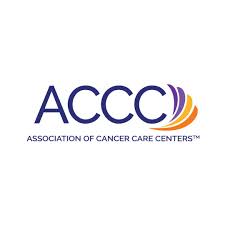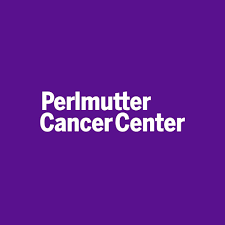
- Center on Health Equity & Access
- Clinical
- Health Care Cost
- Health Care Delivery
- Insurance
- Policy
- Technology
- Value-Based Care
ACCC Helps Share Best Practices for MPN Care
Perlmutter Cancer Center at NYU Langone was 1 of 3 sites to take part in the Association of Cancer Care Centers quality improvement initiative in myeloproliferative neoplasms (MPNs).
Myeloproliferative neoplasms (MPNs) are rare blood cancers that are often not well understood. Not even considered cancers until 2008, they can be hard to diagnose and can progress quickly; although patients may live many years with these diseases, they may have a significant symptom burden.
Following a 2008 reclassification, the World Health Organization considers the 3 classic types of BCR-ABL1 negative MPNs to be polycythemia vera (PV), essential thrombocythemia (ET), and myelofibrosis (MF).(Chronic myeloid leukemia is BCR-ABL1 positive). The National Cancer Institute estimates that 20,000 people are living with MPNs in the United States.
Patients with MPNs may suffer symptoms that include night sweats, fatigue, poor sleep, weight loss, fevers, bone pain, and itchy skin (pruritis); mental health symptoms can include depression, anxiety and difficulty concentrating. These early symptoms can be confused with other conditions, notably menopause for women. A 2016 survey found that physicians significantly overestimated patients’ ability to recognize that certain symptoms were related to MPNs.
Treatment for MPNs has seen significant advances in recent years, starting with the approval of ruxolitinib (Jakafi) in 2011 for MF. However, not all practices are fully aware of care guidelines; a 2020 study found regional variability in how MPNs are treated.
ACCC logo | Image credit: ACCC

In recent years, the Association of Cancer Care Centers (ACCC) created the Advancing Care for Patients with Myeloproliferative Neoplasms: Quality Improvement Program, which sought to help embed best practices in management of patients with MPNs as well as develop actionable quality improvement plans over a 6-month period in the selected practices.
Over a 3-year period ending in 2024, ACCC worked with Perlmutter Cancer Center at NYU Langone Hospital on Long Island; Kent Hospital in Kent County, Rhode Island; and Charleston Area Medical Center Vandalia Health in Charleston, West Virginia. ACCC published summaries of each institution’s experience on its website as well as an overview of the program and the MPN landscape. A summary of the Perlmutter experience follows.
The program was supported by Incyte.
Perlmutter’s MPN Quality Initiative
Each year, care for approximately 30 patients with PV, 20 with ET, and 16 with MF is offered at a hematology/oncology faculty clinic and a weekly fellow clinic, according to a summary published by ACCC.
Perlmutter logo | Image credit : NYU Langone

Keys to quality improvement include symptom management—including helping patients recognize and track symptoms—a focus on clinical trials, and practice changes. At an earlier webinar, Andrew Kuykendall, MD, of the Department of Malignant Hematology, Moffitt Cancer Center, who was part of the ACCC quality improvement program, had articulated the program goals:
“Our goal in treating patients with [MPNs] is not only for our patients to live longer, but also for our patients to live well,” he said. “The symptom burden of [MPNs] affects how well patients live, so asking our patients about the symptoms and us working collaboratively to address [them] is ongoing.”
Fatigue was singled out as a common symptom warranting attention, which can be measured with the Fatigue Severity Scale or the MPN Symptom Assessment Form Total Symptom Score.
There are many ways to ensure that clinical trials are considered in the treatment process, according to the Perlmutter summary. Physicians should ensure they understand which patient populations align with recruitment criteria and connect with specialists handling trials—one way to do this is attend conferences where data on MPN trials are presented.
MPN trails should be discussed in the upfront decision-making process, and these discussions should include studies happening in smaller, community-based networks.
Practice Changes. In keeping with the overall goals of the program, Perlmutter sought to implement protocols for diagnosing MPNs and a quality-of-life assessment, which would be measured over 6 months.
Team members said they had met their goals by having multidisciplinary meetings to assess MPN cases, these meetings would continue; by increasing clinic time, which reduced the length of time between referral and the first visit; and by strengthening care coordination among physicians and the care team. In addition:
- a validated MPN Patient Reported Outcomes tool used at each visit was being used more frequently,
- multidisciplinary education opportunities increased, allowing clinicians to stay abreast of the latest scientific developments in MPNs,
- New processes were created to screen for patients’ financial hardship and reduce financial toxicity, which is fairly high among these patients. A 2019 article published in Blood found 40% of patients surveyed were experiencing financial toxicity.
Reference
Advancing care for patients with myeloproliferative neoplasms. Association of Cancer Care Centers. Accessed January 12, 2025. https://www.accc-cancer.org/home/learn/cancer-types/hematologic-malignancies/advancing-care-for-patients-with-myeloproliferative-neoplasms
2 Commerce Drive
Cranbury, NJ 08512
AJMC®
All rights reserved.